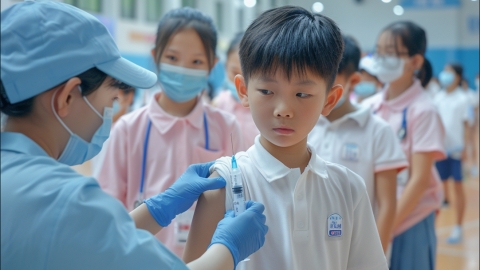What diseases can the 23-valent pneumococcal vaccine prevent?
Generally speaking, the 23-valent pneumococcal vaccine refers to the 23-valent pneumococcal polysaccharide vaccine. This vaccine can prevent diseases such as pneumonia, meningitis, sepsis, bacteremia, and sinusitis. Details are as follows:

1. Pneumonia
Streptococcus pneumoniae is a common pathogen causing community-acquired pneumonia. It can lead to alveolar inflammation, resulting in symptoms such as fever, cough, sputum production, and chest pain. In severe cases, it can impair respiratory function and even be life-threatening.
2. Meningitis
Streptococcus pneumoniae can enter the central nervous system through the bloodstream, causing meningitis. This can lead to symptoms such as headache, vomiting, neck stiffness, and altered consciousness, potentially resulting in complications like hearing loss, intellectual disability, and epilepsy.
3. Sepsis
Streptococcus pneumoniae can enter the bloodstream and multiply extensively, releasing toxins that cause sepsis. Symptoms may include high fever, chills, skin petechiae or ecchymoses, and shock, with a relatively high mortality rate.
4. Bacteremia
Streptococcus pneumoniae can enter the bloodstream but multiply to a lesser extent, causing systemic symptoms such as fever and chills. If not controlled promptly, it may progress to more severe conditions such as sepsis.
5. Sinusitis
Streptococcus pneumoniae infection of the sinuses can cause sinusitis, with symptoms including nasal congestion, runny nose, headache, and facial tenderness, affecting the patient's quality of life. If the infection spreads, it may lead to other complications.
After vaccination, it is still important to maintain good personal hygiene habits to reduce the risk of infection. Before vaccination, please consult a doctor to understand precautions and contraindications related to vaccination.







